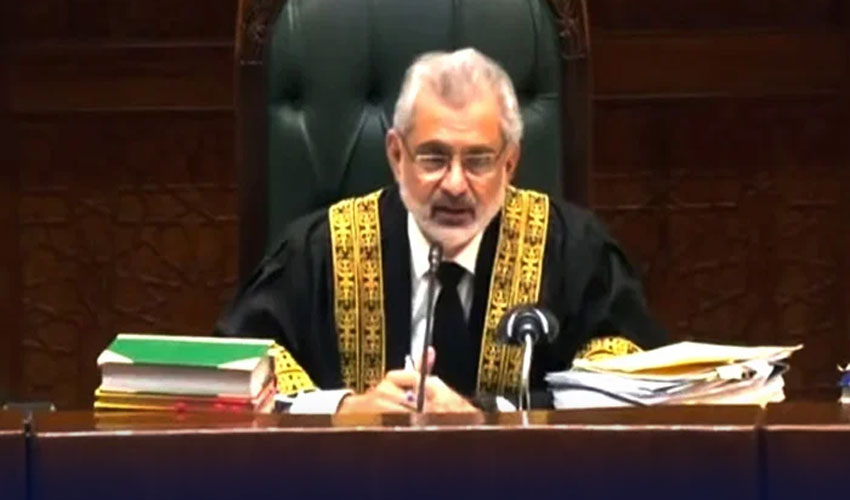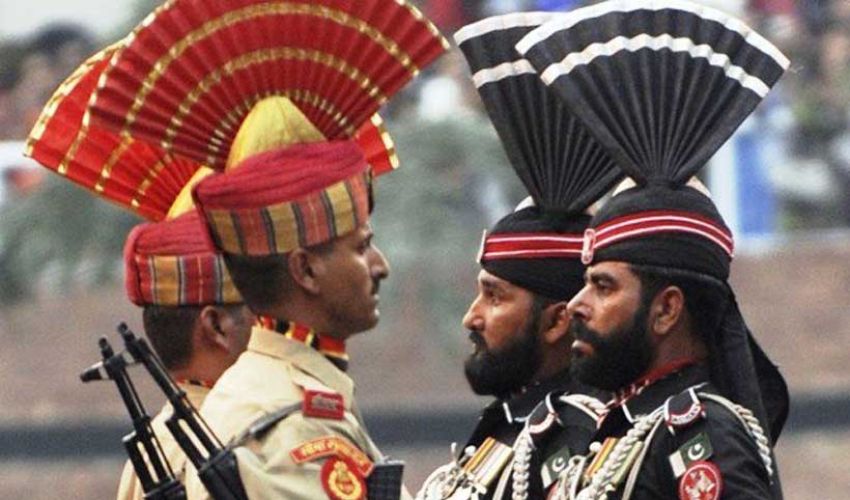The Supreme Court (SC) postponed the hearing on the presidential reference against the late former prime minister Zulfikar Ali Bhutto's death sentence until after the general elections in the third week of February.
The date for the next hearing will be announced later.
A nine-member larger bench of the apex court, headed by Chief Justice of Pakistan (CJP) Qazi Faez Isa, resumed hearing on the petition. Justice Sardar Tariq Masood, Justice Mansoor Ali Shah, Justice Yahya Afridi, Justice Aminuddin, Justice Jamal Mandokhel, Justice Muhammad Ali Mazhar, Justice Hasan Azhar Rizvi and Justice Musarrat Hilali were also part of the larger bench.
During the proceedings, Justice Mansoor Ali Shah asked the counsel what the legal question in the reference was and if the court should comment on the interview of one of the seven judges on the bench that delivered the verdict against Bhutto or have it investigated.
CJP Isa remarked that considering the ratio with which the decision was delivered, even one judge’s opinion was important.
The CJP remarked that presently, the court was looking at the dignity of a person and the integrity of the law. “The court wants to set a good example,” he added.
The top judge also remarked: “It must be seen whether the Supreme Court was guilty, the prosecution, or the martial law administrator at the time.”
Amicus curiae Makhdoom Ali Khan informed the court that the basis of the Bhutto presidential reference was the interview of former chief justice Naseem Hasan Shah. CJP Isa directed the court staff to de-seal the copy of the interview sent to the court by the channel concerned.
During the hearing, Barrister Salahuddin Ahmed, another amicus curiae said his wife was the granddaughter of Nawab Ahmed Kasuri, and asked if the parties had any objection to his assistance. Lawyer Farooq H. Naik said Bhutto's heirs had no objection.
Similarly, Advocate Khawaja Haris said his father was the lawyer of DG FSF Masood Mahmood in the Bhutto case and asked if any party had any objection to him. The CJP nobody had any objection to him and that everyone trusted his objectivity.
However, Raza Rabbani objected to Khawaja Haris being an amicus curiae, at which the former disassociated himself.
Option not to hear the reference
During the hearing, Makhdoom Ali Khan said four questions had been raised in the presidential reference, on which the CJP asked him to first read Article 186 under which the reference had been filed. “Do we have an option not to hear this presidential reference?” the CJP asked.
Makhdoom Ali Khan said constitutionally, the court has no option other than giving an opinion. If the questions in the presidential reference are ambiguous, then the court can have another option.
Justice Shah said that even if the court considers the question ambiguous, giving an opinion will be the only option.
Syed Sharifuddin Pirzada's letter
Makhdoom Ali Khan read out Syed Sharifuddin Pirzada's letter. Zulfikar Bhutto's sister had appealed to the president for mercy, while Bhutto himself did not file any mercy appeal.
Justice Mansoor Ali Shah questioned if the court had to answer the legal question only, investigate the interview of Justice Naseem Hassan Shah or order an inquiry on the basis of an interview.
The interview was with one judge and there were other judges on the bench too, the judge said, asking if other people related to the interview should also be called and an inquiry started. Under Article 186, the court can give an opinion only on questions of law.
Former CJP Naseem Hasan Shah’s interviewed screened
The interview of former CJP Naseem Shah to journalist Iftikhar Ahmed was screened in court. however, the court asked for only the relevant portion to be show as the entire thing was quite lengthy.
Makhdoom Ali Khan said Justice Naseem Hasan Shah explained everything in his book. Farooq Naik said the transcript he had presented in court included the relevant part.
Justice Muhammad Ali Mazhar asked whether Justice Naseem's book was published earlier or the interview was conducted.
The court wants to set a better example considering the honour of an individual and the correctness of history, remarked the CJP.
Justice Mansoor Ali Shah said the only point was that the judiciary at that time was not independent, and asked how to get to the exercise of determining whether the bench was independent.
Justice Yahya Afridi said the interview of one judge cannot give the impression that the entire judiciary was not independent, adding that there were other judges who wrote notices and dissented.
The CJP said the ratio of the bench in the Bhutto case was such that the opinion of one judge was also important, adding that the majority vote of one judge led to Bhutto’s hanging.
The court directed to present a copy of Justice Shah’s interview to Farooq Naik. CJP Isa told Farooq Naik he had provided the correct copy of the interview as the part about the pressure was not included in it.
Justice Hilali remarked that there was a need to correct history, as the stain was not only on a family, some institutions also.



























